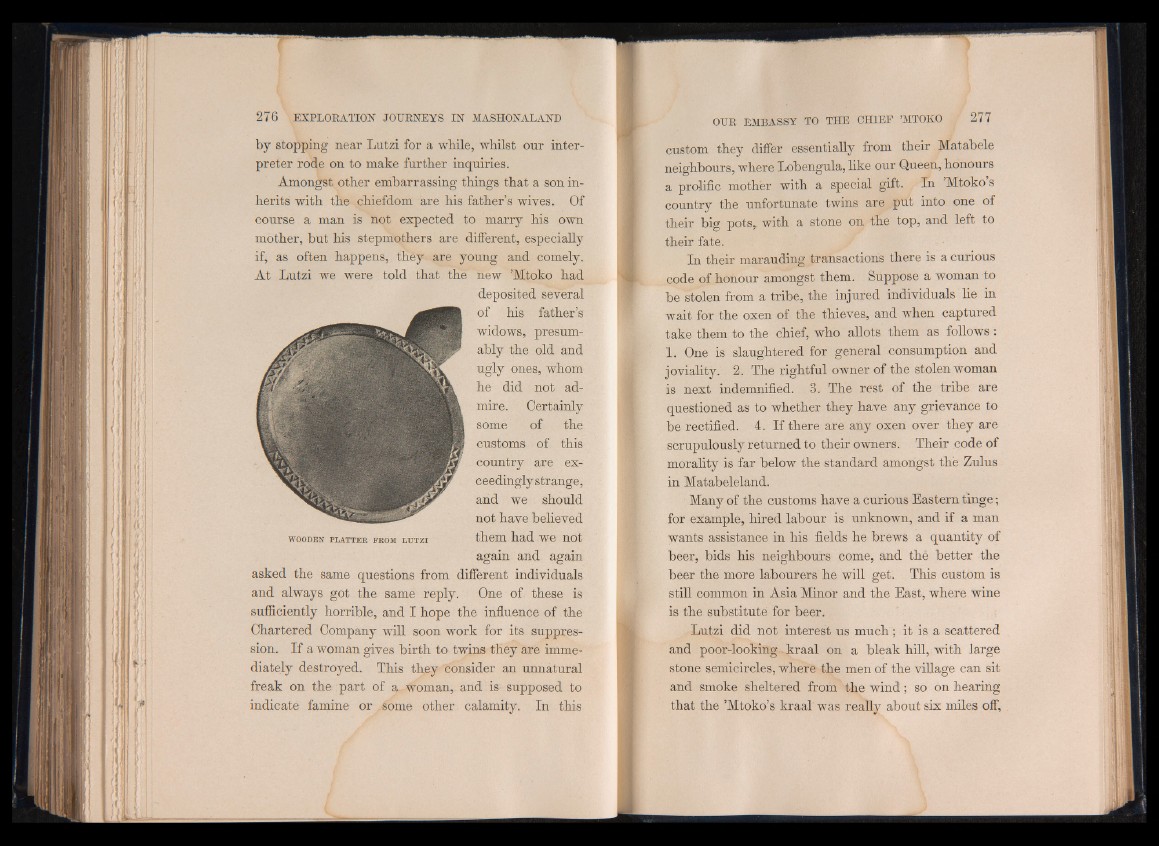
by stopping near Lutzi for a while, whilst our interpreter
rode on to make further inquiries.
Amongst, other embarrassing things that a son inherits
with the chiefdom are his father’s wives. Of
course a man is not expected to marry his own
mother, but his stepmothers are different, especially
if, as often happens, they are young and comely.
At Lutzi we were told that thé new ’Mtoko had
deposited several
of his father’s
widows, presumably
the old and
ugly ones, whom
he did not admire.
Certainly
some of the
customs of this
country are exceedingly
strange,
and we should
not have believed
w o o d e n f l a t t e r f r o m l u t z i them had we not
again and again
asked the same questions from different individuals
and always got the same reply. One of these is
sufficiently horrible, and I hope the influence of the
Chartered Company will soon work for its suppression.
If a woman gives birth to twins they are immediately
destroyed. This they consider an unnatural
freak on the part of a woman, and is supposed to
indicate famine or some other calamity. In this
custom they differ essentially from their Matabele
neighbours, where Lobengula, like our Queen, honours
a prolific mother with a special gift. In Mtoko s
country the unfortunate twins are put into one of
their big pots,, with a stone on the top, and left to
their fate.
In their marauding transactions there is a curious
code of honour amongst them. Suppose a woman to
be stolen from a tribe, the injured individuals lie in
wait for the oxen of the thieves, and when captured
take them to the chief, who allots them as follows :
1. One is slaughtered for general consumption and
joviality. 2. The rightful owner of the stolen woman
is next indemnified. 3. The rest of the tribe are
questioned as to whether they have any grievance to
be rectified. 4. If there are any oxen over they are
scrupulously returned to their owners. Their code of
morality is far below the standard amongst thè Zulus
in Matabeleland.
Many of the customs have a curious Eastern tinge;
for example, hired labour is unknown, and if a man
wants assistance in his fields he brews a quantity of
beer, bids his neighbours come, and thè better the
beer the more labourers he will get. This custom is
still common in Asia Minor and the East, where wine
is the substitutè for beer,
Lutzi did not interest us much ; it is a scattered
and poor-looking kraal on a bleak hill, with large
stone semicircles, where the men of the village can sit
and smoke sheltered from the wind ; so on hearing
that the ’Mtoko’s kraal was really about six miles off,